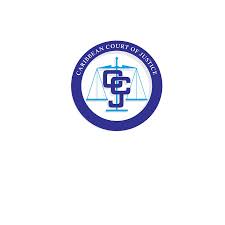Port of Spain, Trinidad and Tobago. In a judgment released today, the Caribbean Court of Justice (CCJ) allowed the appeal of G A Roe & Sons Limited in the matter of G A Roe & Sons Limited v The Commissioner of Stamps and The Attorney General of Belize [2021] CCJ (AJ). The CCJ issued guidelines on the approach to be taken by the Commissioner of Stamps in assessing Stamp Duty. The CCJ heard the appeal on 8 June 2021. G A Roe & Sons Limited (“the Company”) purchased a parcel of land at public auction for BZ$150,000.00. The Company paid BZ$6,500.00 in stamp duties based on that price which was stated in the deed. The Commissioner of Stamps (“the Commissioner”) later determined that BZ$150,000.00 did not represent the market value of the property. The Commissioner assessed the value at BZ$335,000.00 and asked the Company to pay further stamp duty based on that higher sum. The Company was dissatisfied with the Commissioner’s assessment and the manner in which the Commissioner conducted the assessment. The Company began proceedings in the Supreme Court seeking, among other things, an order to prevent collection of duty on the enhanced amount. The Company’s claim was unsuccessful at the Supreme Court and its appeal to the Court of Appeal was also unsuccessful. The Company appealed to the CCJ. The CCJ, in a judgment authored by President Saunders, found that the Commissioner’s assessment should be set aside because the Commissioner did not follow the process that was required by the Stamp Duty Act. The Commissioner in conducting the assessment, categorised the sale by public auction as a “forced sale”. The Court disagreed with the view that a sale by public auction was necessarily to be categorised as a “forced sale”. Instead, the Court held that where there was an “arm’s length sale” by public auction. The Commissioner should only disregard the purchase price stated in the deed where there is evidence to warrant that course. There was no such evidence in this case and therefore, there was no proper basis upon which the Commissioner was entitled, without more, to arrive at the conclusion that the purchase price expressed in the deed was wrong. In a separate judgment, Justice Burgess stated that the Act has invested particularly wide assessment powers in the Commissioner but that the Act could not be interpreted as conferring unbounded power on the Commissioner. Justice Burgess found that the Commissioner’s assessment was not lawful as the Commissioner’s powers were not exercised in accordance with the process set out in the Act, and the Commissioner had also taken extraneous considerations into account. The appeal was therefore allowed. The Court was presided over by the Hon Mr Justice Saunders, President and the Hon Justices Wit, Anderson, Rajnauth-Lee, and Burgess, Judges. The Appellant was represented by Mr Andrew Marshalleck SC and Mr Jaraad Ysaguirre Attorney at law and the Respondent by Mrs Samantha Matute-Tucker Attorney at law. The full judgment of the Court is available on the CCJ’s website at www.ccj.org









